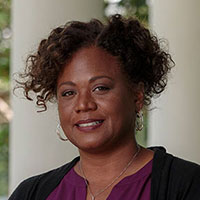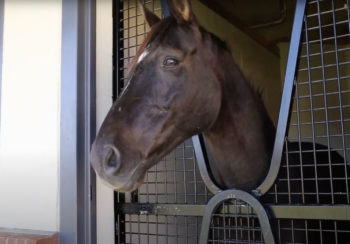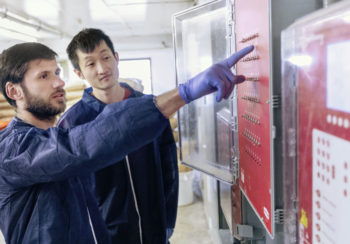For Naola Ferguson-Noel, every day working on avian mycoplasma is like a real-life game of Clue.
Figure out which flocks are infected. Find where the bacteria came from. And decide what you’re going to do about it.
Mycoplasmas are everywhere, and they infect a bunch of different species, including humans. But in poultry, the bacteria are especially prevalent and can cost millions in lost egg production and dead birds—driving up costs for farmers and consumers.
That’s something Ferguson-Noel is committed to fixing.
A major challenge: Antibiotic resistance
For years, the go-to treatment for mycoplasmosis has been antibiotics. But growing resistance and the push to lower the use of antibiotics in food animals has been pushing the industry to find new ways to keep birds healthy.
“Usually, if you have a bacterial infection, you can treat if with antibiotics, it clears up the infection and you’re done,” said Ferguson-Noel, a professor in the University of Georgia’s College of Veterinary Medicine. “Mycoplasma doesn’t work that way.”
Unlike most other bacteria, mycoplasmas lack a cell wall, which is one of the main targets for many antibiotics. This makes the bacteria inherently resistant to antibiotics like penicillin.
“It tends to be very difficult to treat, and it’s a long-term process. It’s very difficult to clean it up and get the situation under control.”
Figuring out which birds need meds is another hurdle.
It’s hard to spot an infected bird before it starts showing symptoms of respiratory distress or joint issues. But by then the animal might’ve been bred and already passed down the infection to its offspring. And if one bird in the flock gets it, the rest likely will too.
In the U.S., poultry farmers benefit from decades of control efforts so that only a few flocks may be affected and they are able to cull flocks with the disease without losing too much money, but in other countries where almost all the birds are positive, that’s not an option.
Ferguson-Noel spends a lot of her time traveling the globe giving keynotes on mycoplasmosis and the latest ways to eradicate the disease. She also diagnoses birds with the conditions and helps poultry farmers figure out the best option for how to take care of the problem.
“People are very concerned about their food and where their food comes from. And I think that it is important to know that we as an industry, as veterinarians, are thinking about the future.”
– Naola Ferguson-Noel, associate professor, Department of Population Health, College of Veterinary Medicine
It’s easier to prevent disease than to control an outbreak
A variety of mycoplasma vaccines have been on the market since the 1960s, but they’re not all equally effective at battling the bacteria and are sometimes an ordeal to administer.
Partnering with the poultry industry, Ferguson-Noel and her team currently have four patents for new vaccines and are testing their efficacy. Inoculating huge flocks of birds is both time and labor intensive, though, so frequently farmers try to optimize the their use of vaccines – like spraying the birds, even when the vaccine itself isn’t officially approved for use in spray form. Ferguson-Noel and the team at UGA’s Poultry Diagnostic and Research Center are one of relatively few places equipped to test whether those alternate approaches are effective at keeping the birds disease-free.
“People are very concerned about their food and where their food comes from,” Ferguson-Noel said. “And I think that it is important to know that we as an industry, as veterinarians, are thinking about the future. We have kids too, and we don’t want to hand them a world where we have a whole bunch of antibiotic-resistant superbugs. We are doing our best to produce safe, healthy chicken. Whether it involves reducing antibiotics, implementing more vaccines, whether it is improving the environment—we do really care about the welfare of our birds.”
Mike Giles, president of the Georgia Poultry Federation, describes how UGA research is impacting the poultry industry.

About the Researcher
Naola Ferguson-Noel
Associate Professor
Department of Population Health
College of Veterinary Medicine
Poultry Diagnostic and Research Center





